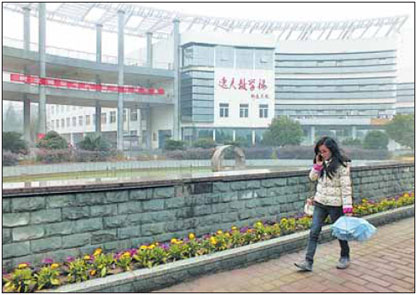Movie mogul Run Run Shaw, 107, dies in HK
By Raymond Zhou (China Daily) Updated: 2014-01-08 08:14Philanthropist
Shaw's work ethic is often credited as the main reason for his success. For much of his life, he worked 16-hour days. He would watch the "dailies" of every film in production and write his feedback on a sheet of paper. He would review every story and script under development. He said his entertainment was the same as his job, which was watching movies. Unverified reports suggest that he had watched more movies than any other person alive. Before the age of 80, he would view 600-700 feature films every year - his record was nine movies in a single day.
He said he watched all kinds of movies to understand the zeitgeist and know what was popular at the time. He would judge a project by its box-office potential and would never become involved for purely aesthetic reasons. When directors made money for him, though, he would grant them greater leeway in terms of subject matter and budget.
|
This 'Yifu' building at a campus in Yichang, Hubei province, is one of the 5,000 buildings on the nation's college campuses bear Run Run Shaw's Chinese name. Many students are mourning him. Liu Junfeng / for China Daily |
Shaw's rigidity in employee compensation was in sharp contrast to his spendthrift ways in philanthropy. In 1973, he launched a charity foundation with the emphasis on education. "China has poverty and needs lots of money to develop education," he once said.
More than 5,000 buildings on the nation's college campuses bear Shaw's Chinese name, "Yifu", which he took as an adult. His brothers also adopted new names.
Now, students are so accustomed to seeing "Yifu" that many believe it to be a generic name for a building.
Shaw's donations to the world of education were not limited to the Chinese mainland, but also spread to Hong Kong and the Western world. Universities such as Harvard, Stanford, MIT and Oxford have all benefited from his money.
Another recipient of his largess was the medical sector. Again, that's evident from the names of many hospitals and individual buildings. Shaw also gave large amounts for the protection of cultural heritage sites such as the Dunhuang Grottoes.
In 2000, Shaw launched an ambitious award for the scientific community, providing $1 million for each of three award categories deemed neglected by the Nobel Prize.
Shaw had four children: Vee Meng, So Man, So Wan and Vee Chung. He married Mona Fong in 1997 when he was 90, 10 years after his first wife, Wong Mei Chun, also known as Lady Lily Shaw, passed away. He thought that it was the "right thing to do" for both women.
Contact the writer at raymondzhou@chinadaily.com.cn
- More female officials caught in corruption
- Whampoa veterans recorded with glory
- Police bust 9 terrorist groups in Xinjiang
- Knife-wielding attackers seized in Xinjiang
- New regulation leads to drop in petitioned cases
- Hunan plant shut as probe into lead poisoning begins
- Police boost efforts to combat gambling
- Project offers jobs openings to legal experts
- Experts: Dog meat festival 'illegal'
- Nation looks to upgrade
pipeline networks







